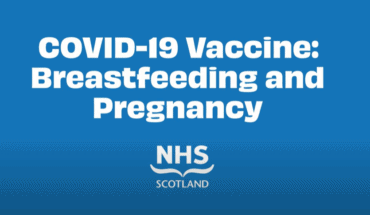Compelling new research entitled “Engagement in Surrogacy by Nationality between 2018 and 2020” is being published jointly by Professor Andrea Whittaker, Monash University and Sam Everingham, Founder of the international charity Growing Families highlighting the state of surrogacy in challenging times.
As COVID took hold over the past two years there was hesitancy to travel for cross-border IVF which is likely to remain a barrier for some time. This has led to a significant increase in shipping of sperm and embryos internationally for the purposes of Donor IVF or surrogacy. Growing Families introduced a new arm during Covid to consolidate shipments for patients, to save them significant costs. However, cross-border surrogacy continues to thrive in many countries despite difficulties with travel. 2020 was associated with a significant decline in surrogacy engagement in Ukraine & Georgia even before the more recent political instability.
The research was undertaken using data provided by 24 agencies in countries providing programmes accessible by both foreign and domestic clients over three calendar years 2018 – 2020. A total of 7092 clients were reported to have engaged with these agencies.
Only six countries catered to both foreign and domestic surrogacy clients over the study period – USA, Ukraine, Canada, Greece, Georgia and Russia. Countries catering only to domestic surrogacy clients include: UK, New Zealand, Czech Republic, Brazil, Israel, South Africa, and the Netherlands. Countries catering only to foreign clients and not domestic are Columbia, Guatemala, Kenya and Mexico. (*See charts in notes)
Social & demographic change highlights
- The rising middle class in China and relaxation of the one child policy has seen large increases in Chinese nationals engaging in cross-border surrogacy. Chinese agents have also had a huge impact on re-directing heterosexual Chinese couples from once popular destinations such as India, Thailand and Cambodia (now closed) to Ukraine programs.
- Partly due to ‘disruptive’ surrogacy and the rise of countries offering unregulated surrogacy, demand among groups who had previously been unable to afford overseas surrogacy have increased. Cross-border family building is now not restricted to the highest socio-economic tier, but is also attracting singles and couples from nations with lower incomes
- There are very significant variations in the nationalities who engage in surrogacy in different destinations. This is mainly due to differences in eligibility and income, with destinations accepting singles and gays, attracting intended parents from countries with sizable LGBTIQ+ populations.
- Several unregulated destinations which attract principally single males and gay couples experienced huge increases in client enrolments over the study period, despite these countries experiencing extended border closures. This increase may be associated with the pent-up demand for more affordable options for this demographic following the closure of once affordable Asian destinations to foreigners and to a higher risk tolerance amongst single males and gay couples.
Key country trends
Comparing client engagement in cross-border surrogacy between 2019 and 2020 when Covid-restrictions came into play showed:
- An increase of 22% in Greece although surrogacy agencies are not permitted under Greek law and referrals come word-of-mouth.
- Huge increases in Colombia 2018-2019 (177% increase) and Kenya (41%) and somewhat lower increases when travel lockdowns happened ( 53% and 41% respectively). Despite COVID, agencies in three of the four unregulated countries continued to report increases in enrolments than the year prior.
- In regulated destinations, Georgia experienced a significant decline (-43%), mainly due to a freeze on all new surrogacy contracts from March 2020. Ukraine was down (-30%), mainly due to the travel bans imposed by Ukraine, along with similar bans by major intended parent countries such as China and Australia
- The lack of any decline in demand for cross-border surrogacy in the US and Canada during the Covid-19 pandemic suggests that there are strong motivations for family building amongst those accessing these markets. Both the USA and Canada ensured that their borders remained open to foreigners arriving for surrogacy births and this may have re-enforced confidence in these destinations. The USA and Canada are the only regulated countries accepting gay and single foreign nationals for surrogacy.
The decisions around third-party reproduction have financial, legal and psychological consequences that are so profound they demand intended parents build relationships with providers before engaging. Growing Families March European conference discusses the full range of family-building options available globally with panel discussions, expert talks and parent feedback.
Lead author Sam Everingham remarks
‘We were surprised to see the data show how resilient was the demand for cross-border surrogacy during Covid-related lockdowns, despite the additional barriers this imposed on intended parents.’
The study findings will be published in full in relevant journals in the months ahead.
- Gut microbiome could delay onset of type 1 diabetes - 3rd April 2025
- The da Vinci 5 Robot Is Set To Transform Bariatric Care: - 31st March 2025
- Beyond money: the hidden drivers fuelling child food insecurity - 31st March 2025






